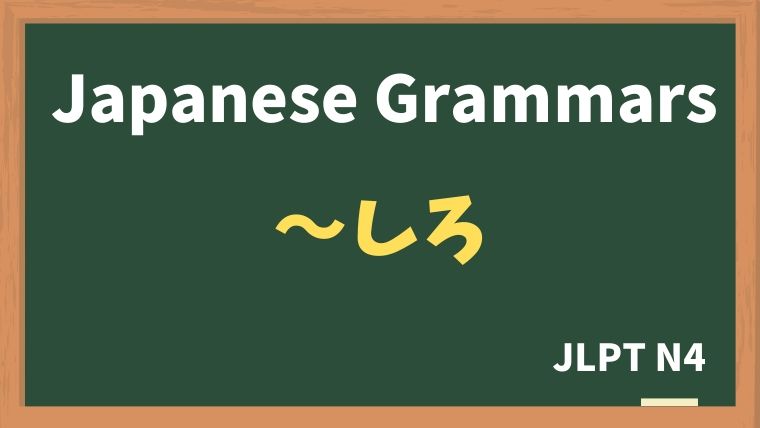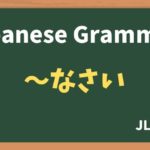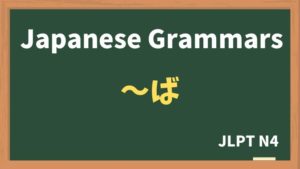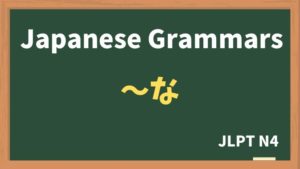
Contents
Explanation:〜しろ
fa-check-circleMeaning
"do it"
The expression "〜しろ" is the imperative form of verbs in Japanese, used to give strong commands or orders. It’s often used in situations where someone is being told firmly or directly to do something.
fa-check-circleForm
| Verb | masu form | imperative form |
| Group1 (U-Verb) | いきます かきます (iます) |
いけ かけ (e) |
| Group2 (Ru-Verb) | ねます たべます |
ねろ たべろ |
| Group3 (Irregular Verb) | します きます |
しろ こい |
The imperative form is used to force a person to do something.
fa-check-circlePoints
- Command Form: "〜しろ" is used to give direct orders or commands, typically in informal or forceful contexts.
- Common in Casual Situations: It’s often used among close friends, family members, or in authoritative situations (like a parent or teacher giving orders).
fa-check-circleJLPT Level
N4
Sample sentenes
がんばれ!がんばれ!
Keep it up! Keep it up!

金を だせ!
Hand over the cash!

はやく にげろ。
Hurry, run away.
はやく ねろ。
Go to bed now.
こっちに こい。
Come here.
ちゃんと しろ。
Do it right.
Vocabulary
| Japanese |
English | |
| 逃げる | にげる | to run away / to escape |
Comparison: "〜なさい" vs. "〜しろ"
While both forms are used to give commands, "〜なさい" is slightly softer and more polite, often used by parents or teachers when instructing children. "〜しろ" is more direct and commanding, often carrying a more authoritative tone.
-
- Example:
- しゅくだいを しなさい (Do your homework) – slightly softer, but still an instruction.
- しゅくだいを しろ (Do your homework) – more forceful and direct.
- Example:
Similar Sentence Pattern







